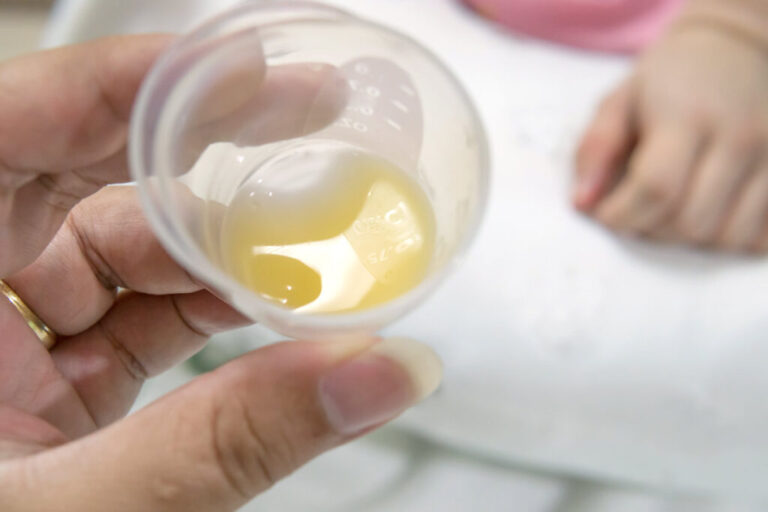Secrets to Increasing Breast Milk Supply Naturally

As a new mom, you might worry about making enough milk for your baby. The good news is that boosting your milk supply naturally is possible. With the right support, you can ensure your baby gets the nutrients they need. The Centers for Disease Control and Prevention say about 75 percent of new moms start breastfeeding. Most babies don’t need solid foods for the first 6 months if they’re breastfed 8 to 12 times a day.
Breastfeeding often, 8 to 12 times a day, is key for milk production. This is vital for your baby’s growth and health. By learning how to naturally increase your milk supply and using lactation support, you can face challenges head-on. The Mayo Clinic notes most women produce more than a third of milk their babies need. So, with the right steps, you can have plenty of milk.
Key Takeaways
- Frequent breastfeeding, 8 to 12 times a day, can help establish and maintain milk production.
- Lactation support is essential for new mothers to overcome common challenges and ensure a healthy milk supply.
- How to increase breast milk supply naturally is a common concern for many new mothers, but with the right approach, it can be achieved.
- Breastfeeding is vital for your baby’s growth and development, and a healthy milk supply is essential.
- Understanding lactation support and how to increase breast milk supply naturally can help you overcome common challenges and ensure a healthy start for your baby.
- With the right lactation support and approach, you can have a plentiful milk supply and ensure your baby receives the nutrients they need.
- It’s essential to prioritize lactation support and learn how to increase breast milk supply naturally to ensure a healthy and happy baby.
Understanding Your Breast Milk Supply
As a new mom, knowing how your breast milk supply works is key. It’s based on a simple system: the more you breastfeed, the more milk you’ll make. Hormones and your health also affect how much milk you produce. For example, herbal remedies for lactation like fenugreek can help, but always talk to a doctor first.
To keep your milk supply healthy, breastfeed only for the first six months. Make sure to use both breasts during each feeding. This boosts milk production and gives your baby the nutrients they need. Also, drinking lots of water is important to avoid dehydration, which can lower milk production.
- At least 6 wet nappies every 24 hours from the fifth day onwards
- 2 or 3 soft yellow poos daily after about 5 or 6 days
- Regular weight gain after the initial 2 weeks
By knowing these signs and keeping your milk supply healthy, you give your baby the best start. If you have any worries, always talk to a healthcare professional.
The Role of Proper Breastfeeding Technique
Proper breastfeeding technique is key to a healthy milk supply. When a baby latches on right, it triggers hormones that boost milk production. To get a good latch, position the baby right and make sure their mouth covers the whole areola.
This not only helps milk flow but also prevents sore nipples. Galactagogues like oatmeal and almonds can also help increase milk production. These foods can be added to a breastfeeding mom’s diet.
Relaxation techniques can also help. Listening to calming music or taking a warm bath can create a peaceful atmosphere. This makes it easier for milk to flow.
Here are some breastfeeding tips to keep in mind:
- Offer both breasts at each feeding to encourage complete emptying
- Feed your baby at least 8-12 times in 24 hours to establish a good milk supply
- Express milk after feeding to increase the “make more milk” signal to the body
By following these tips and adding galactagogues to your diet, you can help your milk supply. Stay relaxed and hydrated. If you have concerns or questions, don’t hesitate to reach out to a lactation consultant.
Essential Foods That Boost Milk Production
As a nursing mom, eating the right foods is key to making milk. A balanced diet with lactation foods can up your milk supply. Foods like oatmeal, almonds, and leafy greens are packed with nutrients.
Lactation supplements can also help. But, always talk to a doctor before taking them. Eating a variety of whole foods gives you the nutrients you need.
- Protein-rich foods like chicken, eggs, and seafood
- Hydrating foods and beverages like water, fruits, and vegetables
- Whole grains like oats, quinoa, and brown rice
These foods are great for milk production and your health. Adding them to your diet can boost your milk supply. This supports your baby’s growth and health.
How to Increase Breast Milk Supply Naturally
Boosting milk supply naturally involves frequent breastfeeding, pumping, and dietary changes. Fenugreek for breastfeeding is a well-known herbal remedy that helps increase milk production. It’s key to have a good breastfeeding routine, nursing your baby often, mainly in the first weeks.
Pumping milk also stimulates production. This is great for moms who need to supplement their baby’s feedings or have low milk supply.
Here are some tips to boost milk supply naturally:
* Nurse your baby every 2-3 hours.
* Express milk after each feeding.
* Drink lots of water to stay hydrated.
* Get enough rest to support milk production.
By following these tips and using fenugreek for breastfeeding, you can naturally increase your milk supply. This ensures your baby gets the best nutrition.
Powerful Herbal Remedies for Lactation
Herbal remedies have been used for centuries to help with lactation and boost milk production. Many nursing mothers use these remedies because they are natural and effective. Fenugreek, blessed thistle, and mother’s milk tea are some of the most popular options.
Fenugreek and Its Benefits
Fenugreek is a well-known herbal remedy for lactation. It helps increase milk production in nursing mothers. It can be taken in capsule or tea form, several times a day, to support lactation.
Mother’s Milk Tea Varieties
Mother’s milk tea is a mix of herbs that support lactation and milk production. These teas often include fenugreek, blessed thistle, and other herbs. There are many varieties available, so nursing mothers can find the best one for them.

When using herbal remedies for lactation, it’s important to follow the recommended dosage. Always consult with a healthcare provider if you have any concerns. Herbal remedies can interact with medications or have side effects. By using them safely and effectively, you can support your milk supply and provide the best nutrition for your baby.
| Herbal Remedy | Benefits |
|---|---|
| Fenugreek | Increases milk production, supports lactation |
| Mother’s Milk Tea | Supports lactation, increases milk supply |
| Blessed Thistle | Supports milk production, aids in digestion |
Lifestyle Changes That Support Milk Production
As a breastfeeding mom, making lifestyle changes can really help your milk supply. Frequent breastfeeding and pumping are key. They help stimulate milk production and ensure your baby gets enough milk. Also, drinking lots of water is vital for milk production. Try to drink at least eight cups of water a day, plus the usual eight 8-ounce glasses for adults.
Adding galactagogues to your diet can also boost milk production. Galactagogues are foods or substances that help stimulate milk production. Oatmeal, leafy greens, and certain herbs are examples. You can also try breastfeeding-friendly teas or supplements with galactagogues. But, always check with your healthcare provider before taking any supplements.
Here are some more breastfeeding tips to help with milk production:
- Frequent breastfeeding and pumping to stimulate milk production
- Staying hydrated by drinking plenty of water
- Incorporating galactagogues into your diet
- Getting enough rest and managing stress
- Avoiding caffeine and certain medications that can decrease milk supply
The Impact of Stress on Milk Supply
Stress can greatly affect milk supply. It reduces the hormones needed for milk production. Studies show that stress can lead to less successful breastfeeding.
To handle stress, new moms can use relaxation techniques like deep breathing or yoga. A calm place to nurse is also key. Eating lactation foods and using lactation supplements can also help.
Here are some ways to relax and reduce stress:
- Listen to calming music or nature sounds
- Take a warm bath or shower
- Do gentle stretches or massage
- Make sure to get enough sleep and rest
By managing stress and creating a supportive space, new moms can boost milk production. Stay hydrated and add lactation foods and lactation supplements to your diet. This will help ensure a healthy breastfeeding journey.
Exercise and Physical Activity Guidelines
Regular exercise is great for nursing moms. It helps with milk production and overall health. A healthy diet, enough water, and exercise are key. Fenugreek for breastfeeding is also a helpful herbal remedy.
Start with exercise that feels right for you. Take breaks to help with milk production. The Department of Health and Human Services suggests 150 minutes of moderate exercise weekly for most women after pregnancy. Here are some safe workouts for nursing mothers:
- Kegel exercises to reduce urinary and anal incontinence
- Pelvic tilt exercise to strengthen core muscles
- Happy baby yoga pose to relax and stretch pelvic muscles
High-intensity exercise might make breast milk taste sour. But, this is rare. Most exercise is safe for milk production and baby growth. Stay hydrated and eat enough to support milk production.
Adding physical activity to your day is good for your health. It’s key for increasing milk supply naturally. Always talk to your healthcare provider before starting a new exercise routine, even more so if you had a C-section. With the right approach, you can enjoy exercise while feeding your baby well.
Common Mistakes That Affect Milk Supply
Many mothers don’t know how to naturally boost their milk supply. Frequent breastfeeding and a good latch are key. But, too much blood loss during birth can slow down milk coming in.
It’s important to avoid formula and focus on breastfeeding often. Newborns need to feed 10 to 12 times a day. Pumping regularly, like double pumping, can also help increase milk.
Healthcare professionals offer great lactation support. They teach the best breastfeeding techniques and help with common issues.
Here are some tips to remember:
- Drink 8 to 10 glasses of water a day to stay hydrated.
- Wait until your milk supply is strong before using bottles or pacifiers.
- Make sure your baby is latched and positioned right for effective feeding.
- Use an electric double breast pump for 20 minutes between or after feedings.
Knowing these mistakes and avoiding them can help you have a healthy milk supply. This way, your baby gets the nutrients they need. Boosting your milk supply naturally takes time, patience, and the right lactation support.
When to Seek Professional Help
While taking proactive steps to boost your
herbal remedies for lactation
and
milk production
can be highly effective, there may come a time when you need to seek professional assistance. Lactation consultants are experts in addressing a wide range of breastfeeding challenges. They can provide invaluable support.
If you’re experiencing persistent low milk supply, painful breastfeeding, or difficulty with your baby’s latch, it’s best to consult a lactation consultant. Studies show that mothers who receive lactation support are 2-3 times more likely to continue breastfeeding for at least six months. Up to 75% of new mothers face breastfeeding issues in the first few weeks, making professional guidance essential during this time.
Lactation consultants can also help manage conditions like mastitis, which affects 10-20% of breastfeeding women. They can provide strategies to alleviate nipple pain, reported by 25% of nursing mothers. They can even address latching difficulties, which impact up to 30% of infants.
By seeking the right support system, you can navigate common challenges and establish a healthy, sustainable milk supply. With the right guidance, you can continue your breastfeeding journey with confidence and ease.






